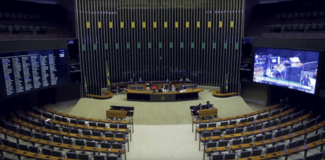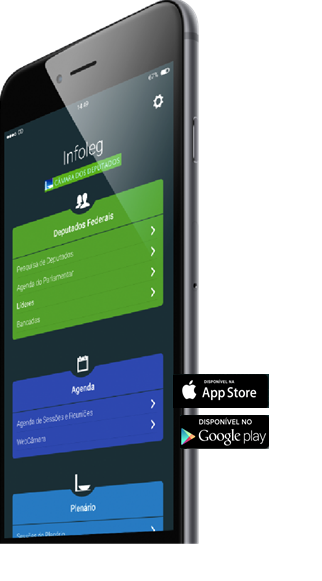- ImpactWe help parliaments to become greener and to implement the Paris agreement.We support democracy by strengthening parliamentsWe work to increase women’s representation in parliament and empower women MPs.We defend the human rights of parliamentarians and help them uphold the rights of all.We help parliaments fight terrorism, cyber warfare and the proliferation of weapons of mass destruction.We encourage youth participation in parliaments and empower young MPs.We support parliaments in implementing the SDGs with a particular focus on health and climate change.
- ParliamentsNearly every country in the world has some form of parliament. Parliamentary systems fall into two categories: bicameral and unicameral. Out of 190 national parliaments in the world, 78 are bicameral (156 chambers) and 112 are unicameral, making a total of 268 chambers of parliament with some 44,000 members of parliament. IPU membership is made up of 180 national parliaments
Find a national parliament
We help strengthen parliaments to make them more representative and effective.. - EventsVirtual eventThe International Court of Justice (ICJ) was constituted under the United Nations Charter to help nations settle disputes peacefully in accordance with international law.
- Knowledge
Discover the IPU's resources
Our library of essential resources for parliamentsGlobal data for and about national parliamentsLatest data and reports about women in parliamentResolutions, declarations and outcomes adopted by IPU MembersRecent innovations in the way parliaments workThe latest climate change legislation from the London School of Economics' database
Preserving parliament’s functionality during the COVID-19 pandemic: Brazil’s experience

Virtual meeting of the Chamber of Deputies of Brazil. © Chamber of Deputies of Brazil
To ensure the continuity of legislative work during the COVID-19 pandemic – when social distancing became a major concern – on 17 March, the Brazilian Chamber of Deputies approved Resolution 14/2020 on virtual plenary sessions.
The path to a virtual parliament had actually been established several months earlier, when the Brazilian members of parliament approved Resolution 12/2019 on the digital legislative process in the Brazilian Chamber of Deputies. Combined, the resolutions laid the perfect ground for developing a broad digital solution to support the remote work of 513 MPs (see video).
Only eight days after Resolution 14/2020 had been approved, the first virtual plenary sitting was held. Two days later, members of parliament were able to participate in virtual sittings using the Infoleg App on their mobile devices.

© Chamber of Deputies of Brazil
Developed by its own technical staff, the Infoleg App offers a virtual plenary structure, a set of internal legislative systems, and a videoconferencing service. Virtual sittings are designed to be held in a hybrid mode to cover MPs inside and outside the Chamber. This flexibility allows for holding sittings not only during the various phases of the COVID-19 pandemic, but will also act as a contingency strategy after the crisis.
Launched in 2016, the Infoleg App was built to keep citizens informed about the legislative process, members of parliament, committee meetings, plenary sittings, laws, bills (full texts, amendments and all related decisions). The virtual plenary was updated with new functions intended exclusively for members of parliaments such as: attendance registration, MPs in attendance, leaders’ voting orientation, voting and voting result panel, speakers’ lists.
Each detail of a plenary sitting has been carefully thought through. For example, attendance registration and speakers’ lists are opened two hours prior to a sitting, or citizens can follow on the app or the Chamber’s website the MPs who are registered to speak.
The app also gives access to information and allows for actions linked to the voting process. For example, one function allows leaders to communicate, before voting, their orientation to all MPs. Infoleg also alerts MPs when voting opens and when it closes.
The biggest concern was the question of security. In addition to a password, many steps of authentication and an encrypted channel were set up to offer MPs a safe environment. The authentication process is user friendly and, in addition to other steps, members of parliament can also use their smartphones’ biometric recognition features (facial, iris or fingerprint) to this end.
In addition to Infoleg, during the pandemic, the Brazilian Chamber of Deputies also launched a system which allows MPs to submit bills remotely. Each bill or amendment is digitally authenticated as it moves through the legislative process to the virtual plenary. This function also covers other phases of the legislative process and the works of committees.
Regarding the broadcasting service, videoconferencing works independently on the various systems – the app and other legislative systems. The videoconferencing platform allows the President of the Chamber to see all the MPs; it also focuses on the leaders and has an additional screen that focuses on all of them.
Transparency – one of the main pillars of accountability –is guaranteed in a number of ways: the transmission of sessions – on TV, a YouTube channel, as well as the parliament’s website; information that is accessible to citizens through the app; and open data.
After three months and more than 44 virtual plenary sittings, a comparison of the same period in 2019 and 2020 showed that:
- Although there were more virtual sittings in 2019 h than in 2020, MPs approved 20 per cent more bills in 2020 than in 2019.
- The duration of sittings in both years was about five hours.
- MPs’ attendance rose from 89.2 per cent to 98.1 per cent.
- MPs voting participation rose from 71.3 per cent to 86 per cent.
It is thanks to strategic decisions taken and long-term investments in IT before the pandemic that this success was achieved.
As stated in its last IT strategic plan, the IT Directorate developed an app to provide legislative information to citizens. This app became the central axis of the whole virtual plenary solution and helped develop a system to allow MPs to submit bills and amendments remotely which marked the beginning of a digital legislative process.
In 2017, when it incorporated innovation as part of its strategy, the Directorate of Innovation and Information Technology started a management workflow based on innovative facilitation techniques, on disruptive technology research, and on agile development methods. This triad boosted a set of initiatives in the parliamentary digital transformation set out in Resolution 12/2019 and the Digital Legislative Process project which is still running. Undoubtedly, the sum of all these factors saved precious time when parliaments had to adjust themselves quickly to social distancing rules.
The Brazilian Chamber of Deputies has fully embraced the idea of continuous transformation which is still being pursued and adjusted accordingly in the process. After the first virtual sitting, Infoleg’s fourth version and other legislative systems were improved to meet the demands of a new reality: today, digital parliament is an imperative.




